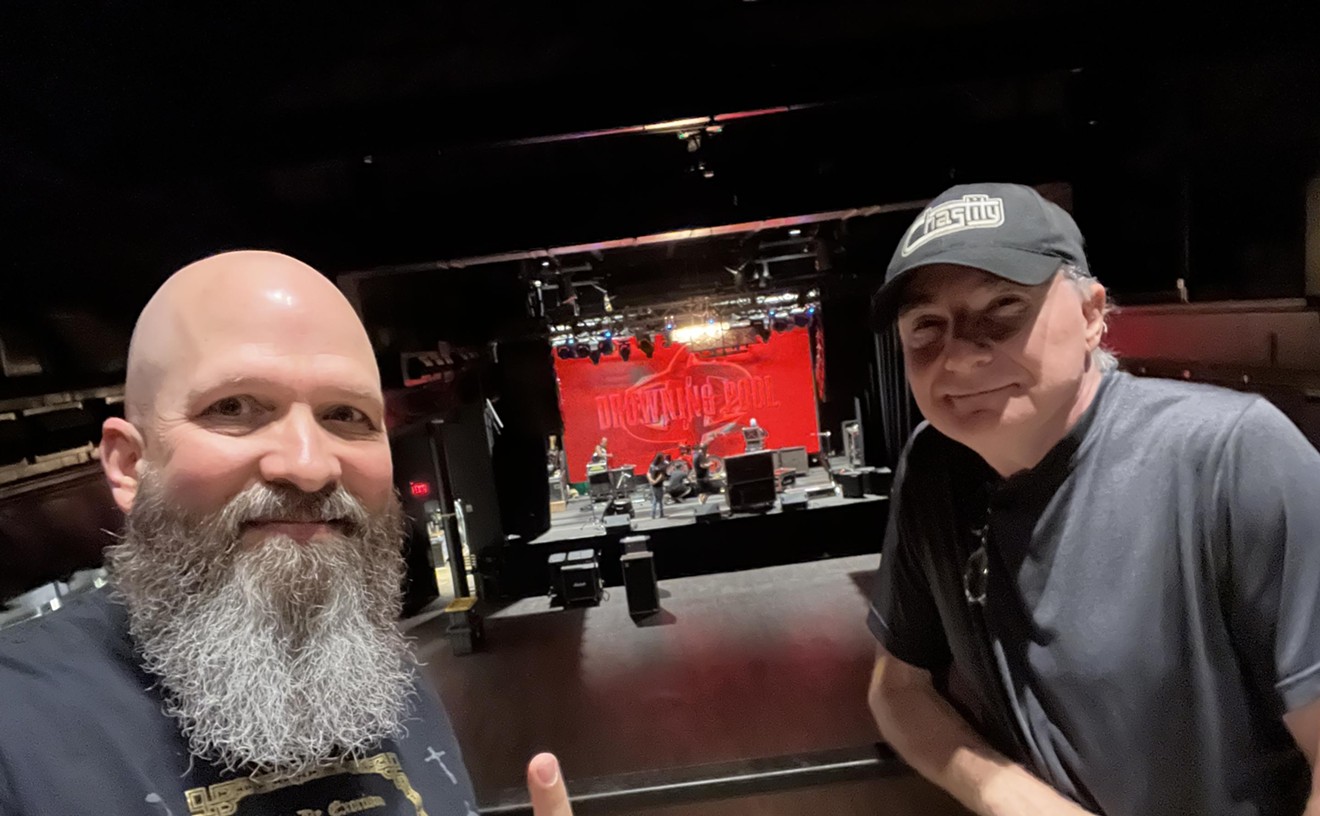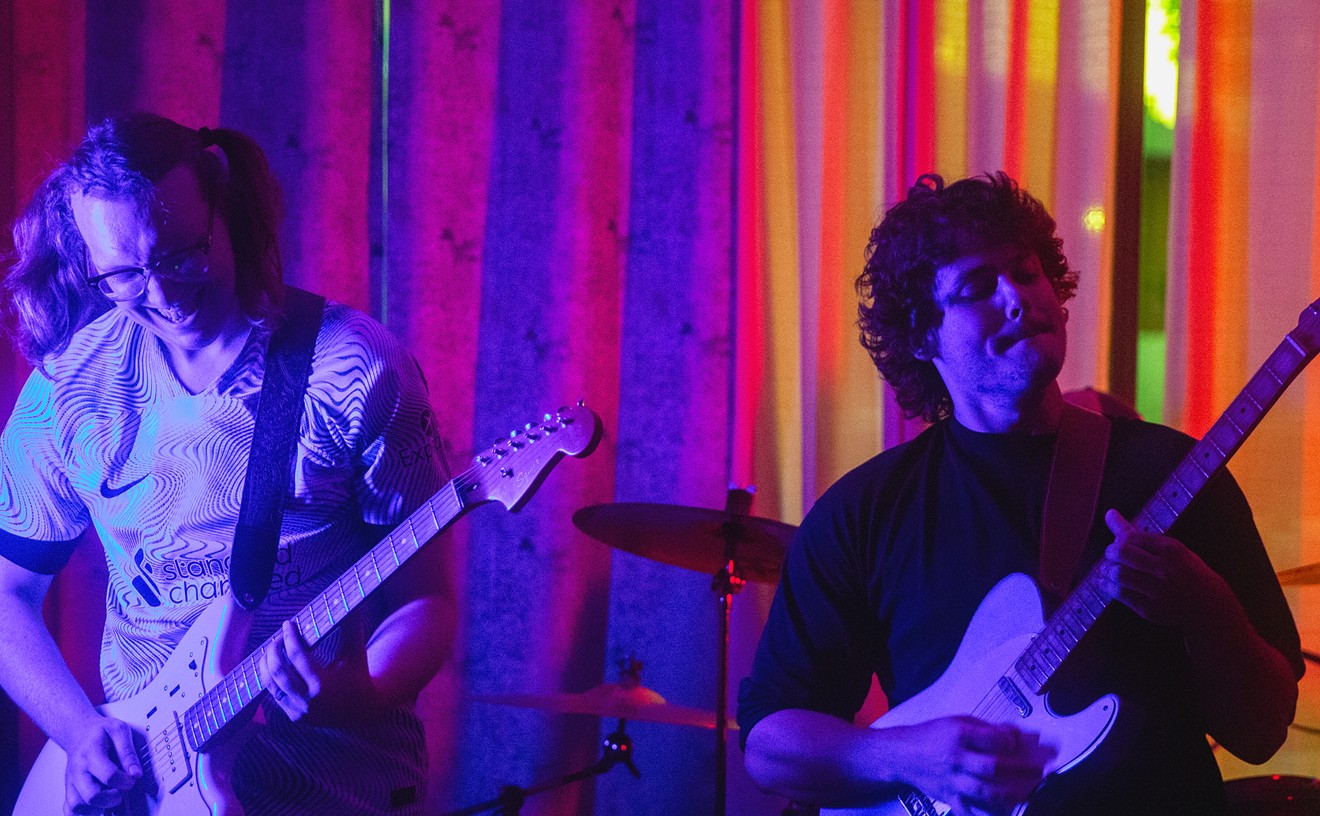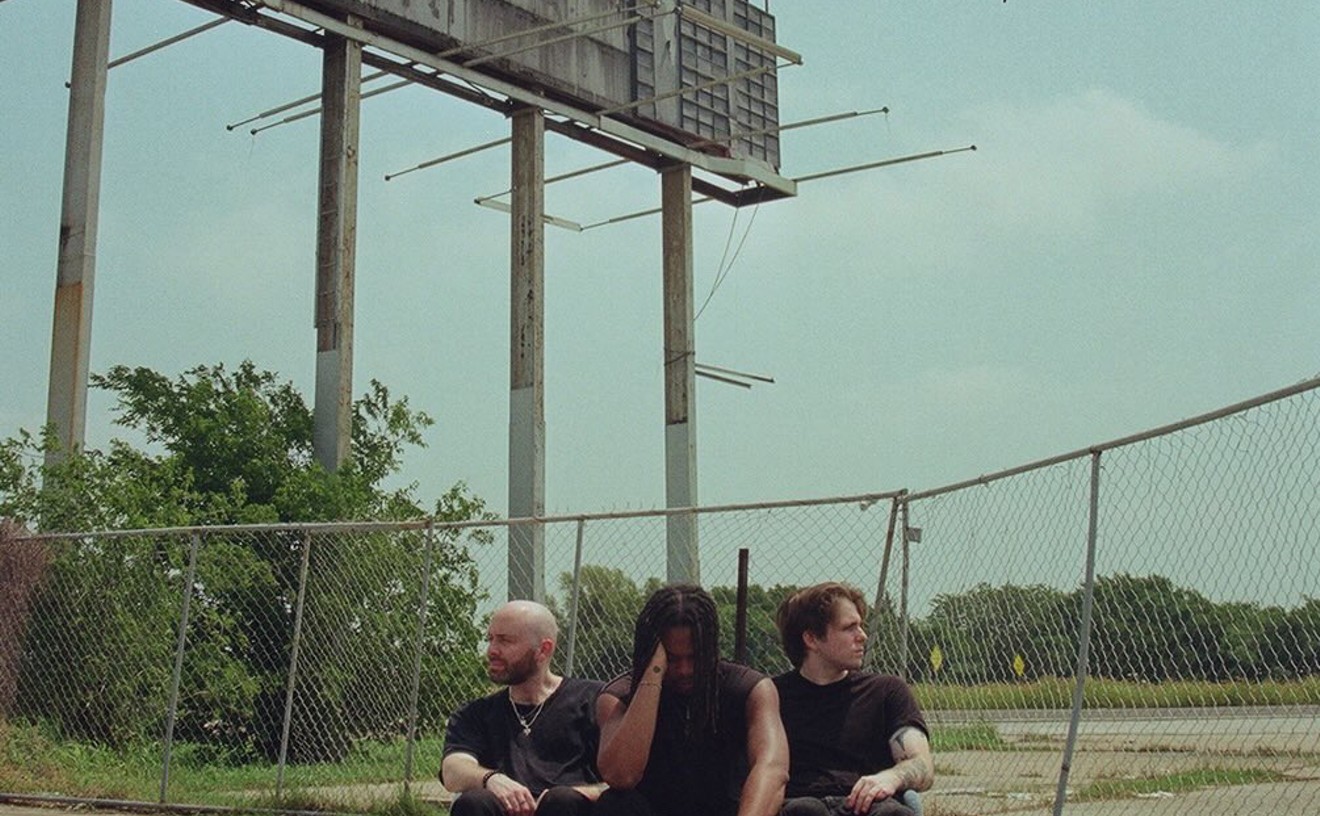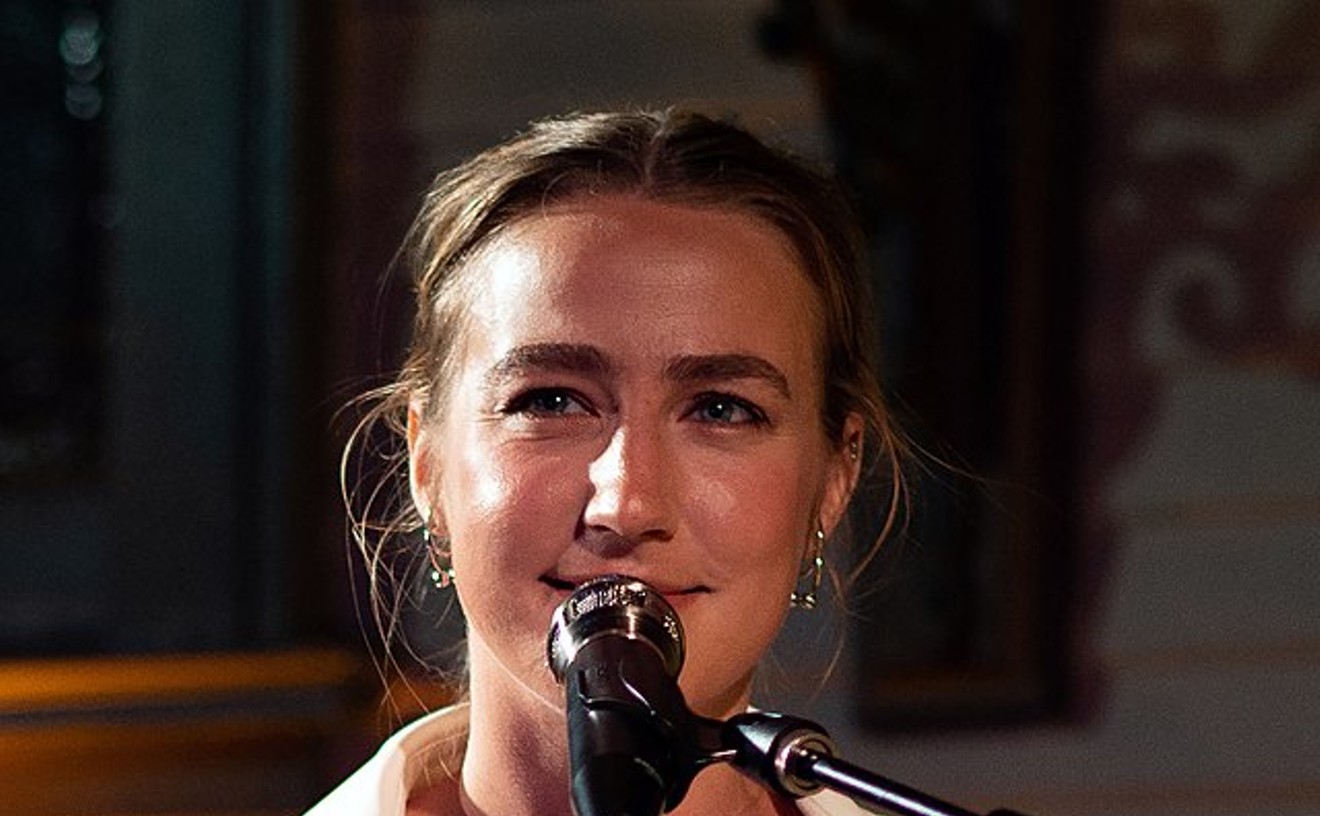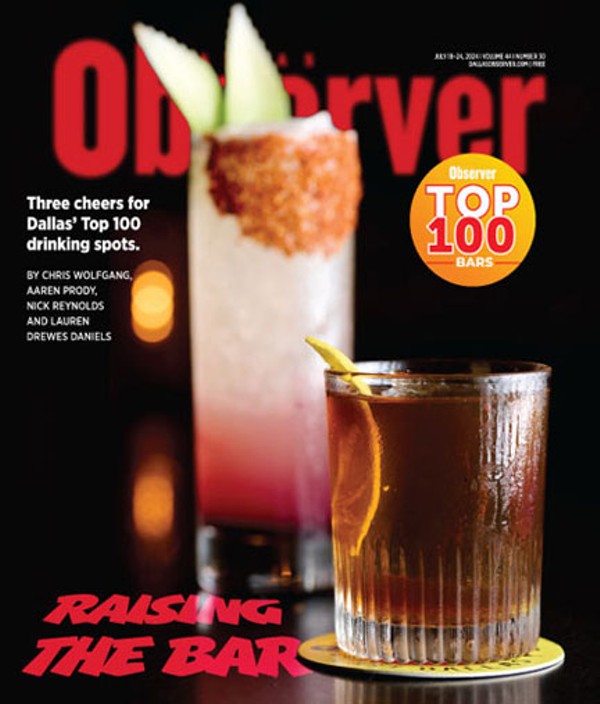Improvisation is a bold tool of the trade that some live performers would just as soon leave to jazz musicians or comedy troupes. Abandoning rehearsal and preparation for spontaneity could expose one's true creativity, or lack thereof. But Kenny Withrow, guitarist of North Texas' prominent Grateful Dead tribute act, Forgotten Space -- performing this Friday at the Granada Theater -- goes one step further and boldly explores a rare type of improvisation that exists between the two conventional worlds of covering original material and artistic free-form interpretation.
"It's interesting you know, it's interesting playing that music," says Withrow. "It's not like, I mean, it certainly is somebody else's material, but it's not exactly a cover band. It's its own kind of music."
"Early on, I would second guess, because you wanna be respectful of what's going on," explains Withrow. "I'm not gonna play whatever the hell I want any way I want. But I'm able to come up with a framework that is respectable, where I'm definitely, in a way playing whatever I want, but it's within a framework of that world."
Forgotten Space is among some 450 other Grateful Dead tribute acts from around the country, according to Withrow. It's an inexplicable phenomenon, the notion of a group of musicians attempting to recapture the Dead's legendary improvised moments on stage.
"And now, you know, the whole community, it's about improvising, and each show is different, and you know, it makes for, it's a very creative process for the band and the audience too. And the more you take chances and the farther you go, the more the audience is into it, and it's very much like being in a jazz band, you know."
Jazz tribute acts performing Miles Davis or John Coltrane can rekindle the spirit, but much like Forgotten Space, it can only remain an interpretation. While there remains a somewhat freeform structure within which to explore the music's compositions, Withrow explains there is one aspect of the Grateful Dead's live sound that they want to remain genuine.
"I think the line that you draw in these kind of situations, you know, gives you your identity. I mean, for us, we like to go for the tones."
Withrow's guitar is a Jerry Garcia tribute, produced by Alembic, a company with a lineage to the production of the Grateful Dead's recordings, which epitomizes the classic tonal archetype for their live performances.
"You know, you definitely want to have that sound. You're not going to basically play through a Marshall stack and a Les Paul...or I'm not," laughs Withrow.
"I'd rather get the tones and at least set the table for what you know you think is gonna happen, and then basically you want to have the spirit of what's going on in a song and you want to try to get to what you think the crux of the spirit of a song is. And then it's all about your own interpretation."
Withrow admits, he was not always a fan of the Grateful Dead legacy. Growing up, his musicianship was rooted in '70s era arena rockers like Ted Nugent and Led Zeppelin. But upon hearing an improvised segment, the Grateful Dead's renowned "Drums and Space," the proverbial chord struck with him. He was well grounded in improvised music from his time as a student at Booker T. Washington High School.
At Booker T. he witnessed one particularly rare performance from a 20th century classical group, who unbeknownst to Withrow and his cohorts, improvised much of their set.
"They started doing free things and we were like, 'What is this music?' It was really amazing," says Withrow.
"And somebody in the audience sneezed, and so of course they sneezed...and they had this whole sneezing jam, and then I was like, 'Oh,' you know, 'now I see what the hell's happening here man!' But I mean, for a sophomore in high school, it was really amazing, so we started to improvise, completely improvising for a long time."
Dallas has a long history with Grateful Dead's music. In the late '80s, Club Dada held a Grateful Dead jam session called "The Dead Thing" every Saturday afternoon. Withrow and a few of his fellow bandmates regularly took part and drew a crowd.
In fact, if there is one constant in the spirit of the Grateful Dead's legacy, it is the infinite growth and devotion of its fanbase.
"As far as the Dead goes, it's been said, and I've kind of thought this too, they were basically like the baseball of rock 'n' roll," explains Withrow.
"It was all about what they had played lately, how many times they played what song. And people, the fans were just fanatical about every aspect of what they were doing, what have they done, how long has it been since they've done it, it's just crazy."
"And the thing is, that it's still like that. I mean, we can tour and go to a town, and play and people will come. People will come because they know you're gonna interpret the music the way you're doing it, and that's infinite."
Withrow notes that it is not only what the transportation of the "jam" segments evokes in the fan's experience that keeps them coming back, but the folklore and prophetic storytelling of the lyricism that they find a special connection with. And they are unafraid to voice that connection.
"We played St. Louis, I guess it was about 4 weeks ago, and they have a song called 'New Speedway Boogie' that was about Altamont, and what happened at Altamont," explains Withrow.
"And this was right around the time the riots were going on and everybody was waiting to hear the verdict on the Michael Brown thing, so we played 'New Speedway Boogie' in a spot of the set where we wouldn't necessarily do it, just out of sort of tribute, of like 'Man, these guys have seen a lot of violence.'
"And the message of the song, that you know, we'll get past this, something's gotta give, basically is the line, and we started the song, and the entire place knew exactly what was up. And everybody sang it really loud, it was like, just these kind of moments that are like wow, this is really, really cool. And seriously, they were singing louder than the band, it was an amazing moment."





